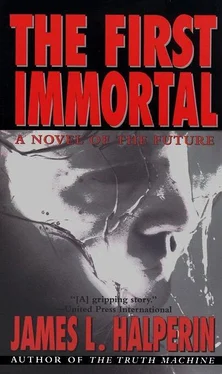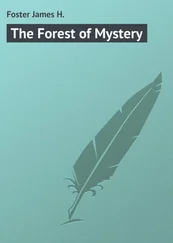“It’s a matter of meaning.” Father Steve’s words seemed practiced, though sincere. “Only that which is finite can have meaning in the eyes of God.”
Gary was appalled but not angry; it was just such a surprise to receive bromide when he’d sought discourse.
“No.” The priest signaled for Gary’s silence. “Before you misunderstand, hear me out. Forget God for a moment…”
The quality of Father Steve’s voice was so earnest that Gary wanted to laugh aloud. Had the man even listened to what he’d just said?
“Whether religious or not,” Father Steve continued, “only that which is finite holds value for us. In the infinite, there is no purpose except as it may be supplied by God. And if you don’t believe in God, just ignore that aspect of my declaration. It still holds true.
“If you could drink the finest champagne forever, on demand, without limit or cost, wouldn’t the value of the flavor diminish? If a sunset lasted forever, someday it would no longer seem beautiful.”
“Why don’t you expand on that?” Gary said. “Let me understand where you’re going with it.”
“What has meaning to you?” Father Steve asked. “Tell me anything. But let it have real significance.”
“Well, my art used to.”
“And did you paint pictures of things that will last forever? Or did you capture the essence of transitory people and events; capture them in their most compelling seconds?”
“What are you saying? That you’re not going to be frozen?”
“That’s precisely what I’m saying. This struggle of yours has been caused in some portion by the prospect of immortality. It is a false hope with sad consequences. We should accept our mortality and fight only against this death. Staying alive as long as possible is a righteous choice, but once Death finds us, it is madness to hope for corporeal resurrection. And I’m certain this desire offends God.”
Now Gary was glad he came. He felt revitalized, with a hope he hadn’t felt in years. And all it had taken was a little engaged, human conversation. “Before I answer, I’d like to tell you why I painted what I did. Whether or not my subjects were finite had nothing to do with my choices. I painted them because I wanted their hopes and images to last forever.”
Father Steve looked at him with attentive eyes.
“Now I’ve got a question for you ,” Gary said. “In whose image is God supposed to have created man?”
“In His own image.”
“And how long will God live?” Gary asked.
May 16, 2031
—The Senate ratifies the International Free Speech Bill (H.R. 3466), and President David West signs it into law. The bill pledges United States support of efforts to enforce freedom of speech and a free press throughout the world. It also budgets $620 billion over five years to enhance the Worldwide Satellite Communications Network. The WSCN allows all persons with computer, radio, or television access to receive programs in their own language from any broadcaster in the world. West hails the legislation as “a giant step toward world democracy. Strengthening the WSCN is the most efficient way to assure that entire populations will no longer be manipulated toward violence by the propaganda of local tyrants.”—Dr. Robert Steinberg, renowned Dartmouth psychology researcher, announces that his team has devised a series of questions, which if asked during Truth Machine testing, can diagnose virtually all known forms of mental illness. They have also formulated successful treatments using ACIP therapy for several such illnesses. Steinberg’s work, widely praised, is expected to revolutionize the field of mental health.—Pursuant to the terms of the Amnesty Bill enacted several weeks ago, over 56 million individuals have already confessed to crimes committed prior to January 1, 2031, mostly misdemeanors and white-collar offenses. Since the Truth Machine was infused into American society, aggressive crime has virtually disappeared, with victimless crime mostly decodified.
Patrick Webster, ninety-one, sat himself at ACIP module #63 of the Boston Amnesty Bureau. His bloodshot eyes stared at the List: seventeen crimes with detailed descriptions thereof, which he’d painstakingly reconstructed from personal files, public archives, and his own pale retrospection.
He assumed there had been other infractions, but knew his recollection of them was permanently lost, and for once felt gratitude for the rot of aging. As long as no evidence or witnesses emerged, such loss-of-memory would be the same, by law, as if those crimes had never occurred. And as long as he tried his best to remember all his crimes, any new discoveries would be covered by the Amnesty provisions.
It wasn’t that Webster feared being stigmatized by his confession. Every person he knew was or had been in his identical position. Before the emergence of the Armstrong Cerebral Image Processor, the foolproof lie detector immediately dubbed the “Truth Machine,” everyone had committed the occasional indiscretion.
He’d studied the Amnesty Laws as thoroughly as his atrophied legal skills permitted, and recognized that under Amnesty he had committed no crimes for which he could receive imprisonment.
Still his entire body was stiff with anxiety. He felt his life was at risk, and perhaps it was. Clearly, restitution had to be made. He wondered how much of his vast wealth would remain under his control. He had little prospect of finding profitable work; the demand for attorneys had been severely limited since the ACIP’s introduction. And he was too old to learn a new, marketable skill. Worse yet, in cases of fraud, none of his assets would be protected.
What if he couldn’t afford to maintain his biostasis insurance? And if he did manage to scrape the money together, his rates would go up: Everyone knew that wealth increased life expectancy. For over a decade, the insurance companies had been factoring net worth into their actuarial tables. Even in the era of the Truth Machine, wealth bought a great measure of survival.
He tallied six instances of drunken driving, all happily victimless. No problem there. Certain illicit drug use; also victimless. Some minor tax evasion, all pre-2006, a hundred percent grandfathered; he was smart enough to have cut that shit out immediately upon reading Roswell’s bill in April of that year. And finally there was the case, right before his retirement, when he’d bribed a juror to get a client off.
Very stupid. But thank God it had been a criminal trial and not a civil suit. Again, no victim with standing, and whatever penalty/fine the artificial intelligence unit imposed would surely be tolerable.
But those four clients he’d overbilled… Damn! Now that was a problem!
It was long ago, back when Webster figured he’d needed the money. None of those clients was still alive—only one was even in biostasis—but plenty of their heirs were still knocking around, as yet unaware of the financial windfall that might soon arrive at Pat Webster’s expense.
I could be in deep-dish dung.
“Is this a complete list of your crimes, described fully and accurately to the best of your ability, Mr. Webster?” the technician asked.
“Yes, subject to the limits of my memory, what’s left of it,” Webster answered in lawyer-speak. He couldn’t help it.
“Yes or no, Mr. Webster.”
“Yes.”
The Truth Machine light remained green.
Thank you, dear Lord.
The AI unit analyzed his List of Crimes and the document was transmitted to Webster’s pocket PC. As he unfolded the screen, the thing felt cold in his hands. That was impossible of course, but…
Amnesty Certificate
Patrick Vernon Webster
ID#6445-7866-543-ADFRD—May 16, 2031
12 victimless crimes
No punishment, fines, or restitution.
1 felony
Bribery, no victim. (2011) Fine assessed: $50,000,000
4 casualty crimes, all pre-Truth Machine Bill
Interest-free restitution:
Malpractice/fraud: The Smith Family Cryonic Trust
(1989-92) $6,978,000.
Malpractice/fraud: The Estate of William Couglin
(1994-98) $9,654,000
Malpractice/fraud: The Dennis Downing Charitable Trust
(1995-99) $13,566,000
Malpractice/fraud: The Estate of Gladys N. Baker
(1997-2003) $26,775,000
Jubilant in his relief, Webster allowed his eyes to linger on that most glorious phrase: “Interest-free restitution.”
Читать дальше












